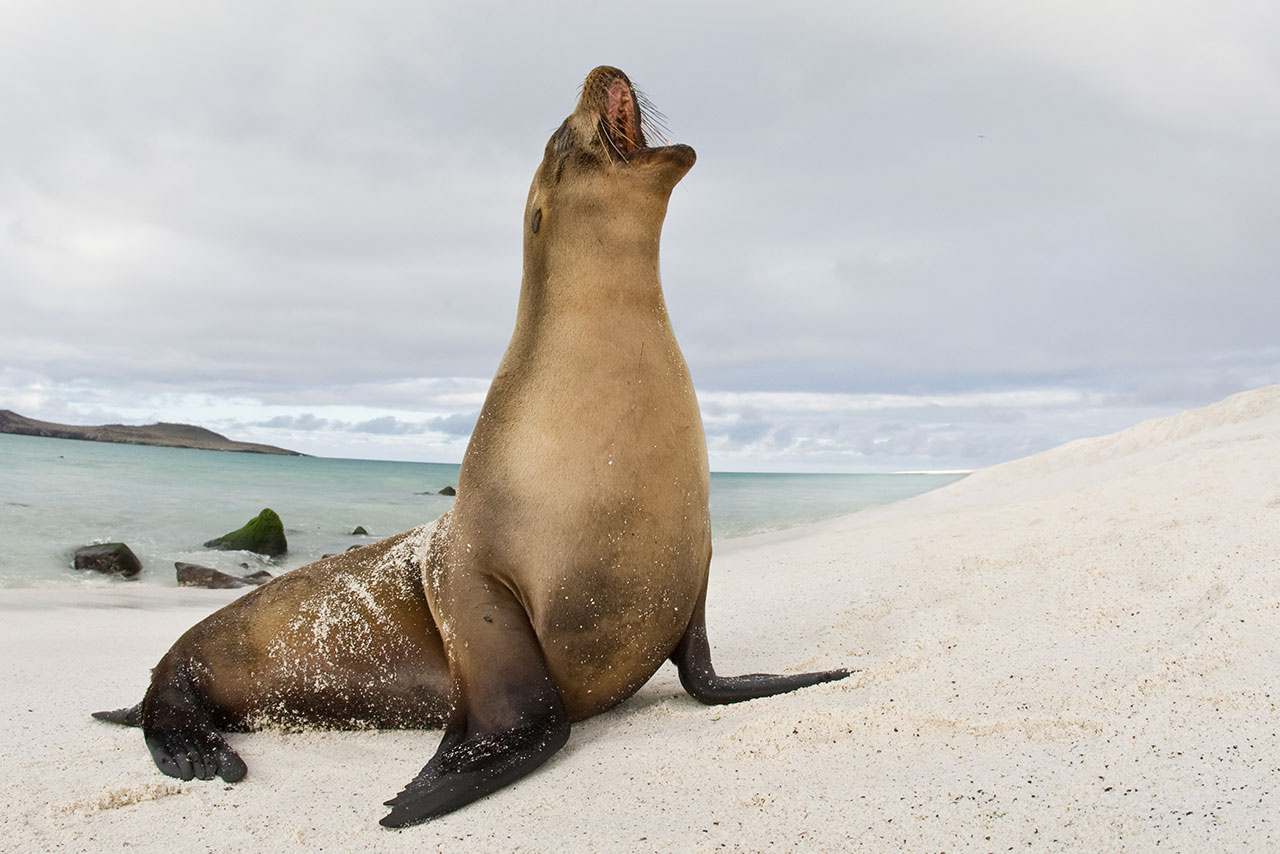Up Close & Personal
Researchers work with the Galápagos community to study an endangered species of sea lion
By Yasmine Iqbal

A chain of islands in the Eastern Pacific Ocean, the Galápagos are home to many species found nowhere else on Earth. But the first time Deena Weisberg, PhD, visited the islands in 2014, she was surprised to find out how many people live there.
“I had this impression that it was an untouched wilderness,” says Dr. Weisberg, associate professor of Psychological and Brain Sciences at Villanova and a fellow of the Learning Exchange program. “But there are about 35,000 people living in Galápagos, interacting with this unique ecosystem.” To study and support Galápagos biodiversity, Dr. Weisberg co-founded and currently co-directs the Galápagos Education and Research Alliance (GERA), a partnership among local island communities and faculty at Villanova, the University of Pennsylvania and Rutgers University.
Under the auspices of GERA, Dr. Weisberg co-led a three-year community science project to study how humans were affecting an endangered species of sea lion. “We wanted to change the perception of scientific research as being an extractive resource, where scientists collect data and then the local community never hears about the results,” she says. “We worked with members of the local community at every stage of the research: coming up with the idea for the project, implementing the research and reporting the results back to their community.”
The research team recruited and trained Galápagueño high school students on the island of San Cristóbal to observe and collect data on how sea lions responded when they were approached from a safe distance on four beaches. Based on observation of more than 3,000 sea lions, their findings suggested that increased human contact with Galápagos sea lions changes the way this species behaves, so it’s important to be aware of the ways in which interspecies interactions can affect both humans and sea lions.
In addition to publishing these findings about sea lion behavior in the journal Wildlife Biology, the team also recently penned an article for the journal Citizen Science: Theory and Practice, describing how their approach can provide a model for community science initiatives.
NEXT IN NOVA-WORTHY
Villanova student-athletes soar on the field and in the classroom